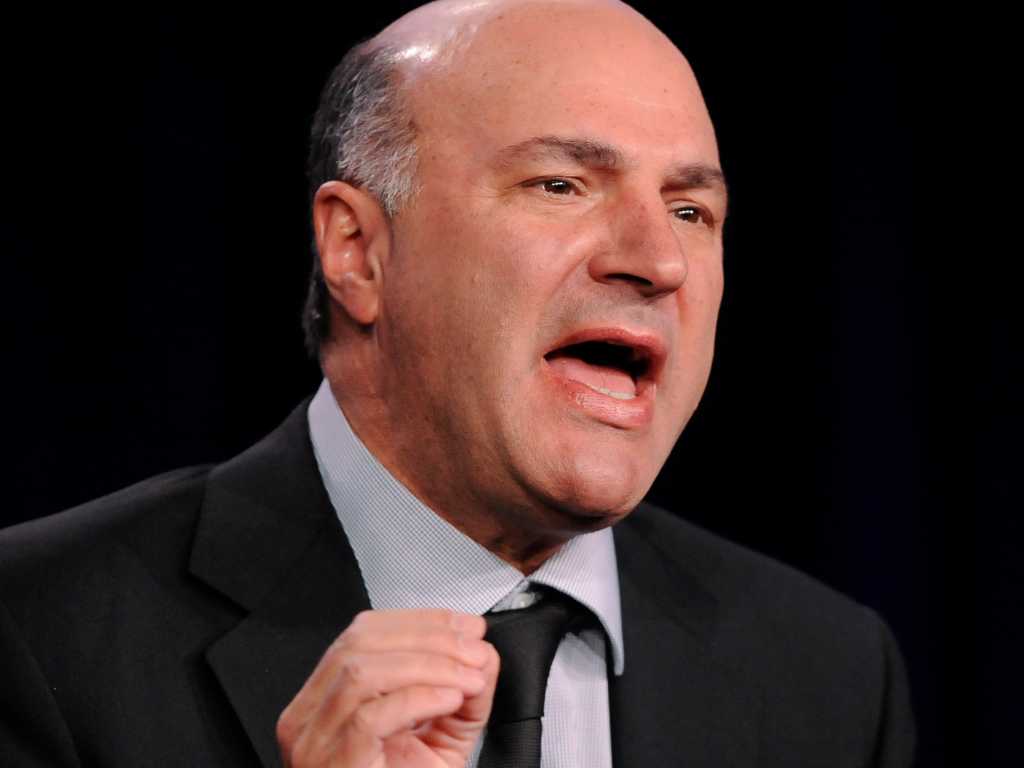Dragon. Shark. Mr. Wonderful. These are all nicknames of Canadian entrepreneur and TV personality Kevin O’Leary, the unfiltered personification of capitalistic inhumanity. More than usual, he has been artificially inserting himself into the nation’s headlines. O’Leary has offered the tidy sum of $1 million in investment to the Alberta energy sector in exchange for Premier Rachel Notley’s resignation—surely a panacea to counteract the estimated $5 billion that the Canadian economy has already lost with the drop in oil prices. Now, there are murmurs that he may run in the upcoming Conservative leadership race. At first pass, it might seem like a good fit: O’Leary has the name recognition of a Donald Trump, but he’s also poised himself as some sort of paragon of fiscal pragmatism. But to understand why this isn’t remotely true, one need only dig a bit into his history.
After getting an MBA at Western University and working in the sexy world of cat food marketing for Nabisco, O’Leary founded SoftKey International, a children’s game software company behind such classic titles as “Shelley Duvall’s Tales of Digby the Dog” and “Solitaire Antics.” O’Leary’s strategy of packaging SoftKey’s titles as superfluous freeware with paid software or selling them at bargain basement prices eventually worked well enough that SoftKey was able to acquire The Learning Company (TLC) in 1995.
Under the next three years of O’Leary’s management, TLC ran a deficit of $1.1 billion, but managed to seem profitable through accounting practices that could generously be called ‘highly suspicious.’ O’Leary then sold TLC to the Mattel toy company for $3.6 billion, making himself a very rich in the process. This is seen as one of the most lopsidedly bad acquisitions in business history, kneecapping Mattel’s stock prices, and ended with the company’s shareholders suing management.
Since then, O’Leary has risen to fame as a television personality on Dragon’s Den and Shark Tank, where he’s built a reputation as a proponent of pursuing profit at all costs, the kind of guy who refers to himself as the “Voldemort of Capitalism.” His hedge fund, which is called the O’Leary Fund despite not being run by him—he doesn’t have the licence required to operate a hedge fund—has posted a 17 per cent loss since its inception in 2012. That’s a high rate of loss, even when the recent tanking of the economy is taken into account.
But none of that matters because most people don’t know his history. He’s a celebrity now, living in a world where image is more important than actual achievement. After seeing the kind of publicity Donald Trump has gotten in the US, O’Leary must feel like he has a reasonable shot at becoming the Canadian equivalent. He could not be more wrong.
For the Conservatives, he would be an unprecedented choice—a bombastic political outsider from a party that tends to pick buttoned-down career politicians. The Tories pride themselves on not rocking the boat too much, making their machinations when they’re outside of the public eye. This is a party that had Stephen Harper, the human equivalent of a toast sandwich, as its leader for over a decade. ‘Personality’ is a four-letter word to them, just like ‘compassion,’ or ‘refugee.’ More broadly, O’Leary seems ill-suited to potentially hold the reins on an economy that is supposed to benefit people other than himself. His entire ethos is based around toxic Randian ideas of self-sufficiency and unfettered liberty that don’t play as well in Canada as they do in the US.
Ideally, O’Leary runs for Conservative leader and does to the party what he did to Mattel and The Learning Company in the past, or what Trump is doing to the Republican Party in the present. But he won’t get that far—Canadian politics, thankfully, is not the place where bluster and fame trump performance record and intelligence.










